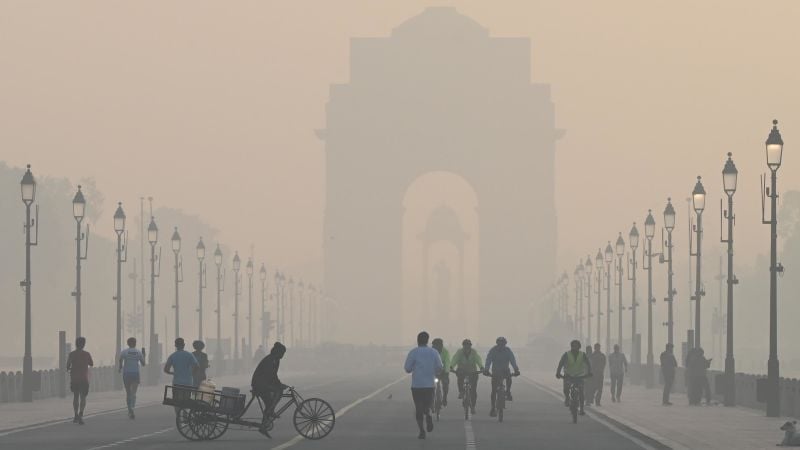All but one of the 100 cities with the world’s worst air pollution last year were in Asia, according to a new report, with the climate crisis playing a pivotal role in bad air quality that is risking the health of billions of people worldwide.
The vast majority of these cities — 83 — were in India and all exceeded the World Health Organization’s air quality guidelines by more than 10 times, according to the report by IQAir, which tracks air quality worldwide.
The study looked specifically at fine particulate matter, or PM2.5, which is the tiniest pollutant but also the most dangerous. Only 9% of more than 7,800 cities analyzed globally recorded air quality that met WHO’s standard, which says average annual levels of PM2.5 should not exceed 5 micrograms per cubic meter.
“We see that in every part of our lives that air pollution has an impact,” said IQAir Global CEO Frank Hammes. “And it typically, in some of the most polluted countries, is likely shaving off anywhere between three to six years of people’s lives. And then before that will lead to many years of suffering that are entirely preventable if there’s better air quality.”



This is the best summary I could come up with:
It comes from sources like the combustion of fossil fuels, dust storms and wildfires, and has been linked to asthma, heart and lung disease, cancer, and other respiratory illnesses, as well as cognitive impairment in children.
Only 10 countries and territories had “healthy” air quality: Finland, Estonia, Puerto Rico, Australia, New Zealand, Bermuda, Grenada, Iceland, Mauritius and French Polynesia.
The human-caused climate crisis, driven by the burning of fossil fuels, plays a “pivotal” role in influencing air pollution levels, the IQAir report said.
The climate crisis is also leading to more severe wildfires in many regions and longer and more intense pollen seasons, both of which exacerbate health issues linked to air pollution.
Last month, Thai authorities ordered government employees to work from home due to unhealthy levels of pollution in the capital Bangkok and surrounding areas, according to Reuters.
The report also highlighted a worrying inequality: the lack of monitoring stations in countries in Africa, South America and the Middle East, which results in a dearth of air quality data in those regions.
The original article contains 1,216 words, the summary contains 172 words. Saved 86%. I’m a bot and I’m open source!
According to this, US is in the “green” averaging less than twice the level. I don’t know whether green is bad or counts as “ok, but over the limit”. According to US state-by-state, my state averages better than most states but still fits that same international category